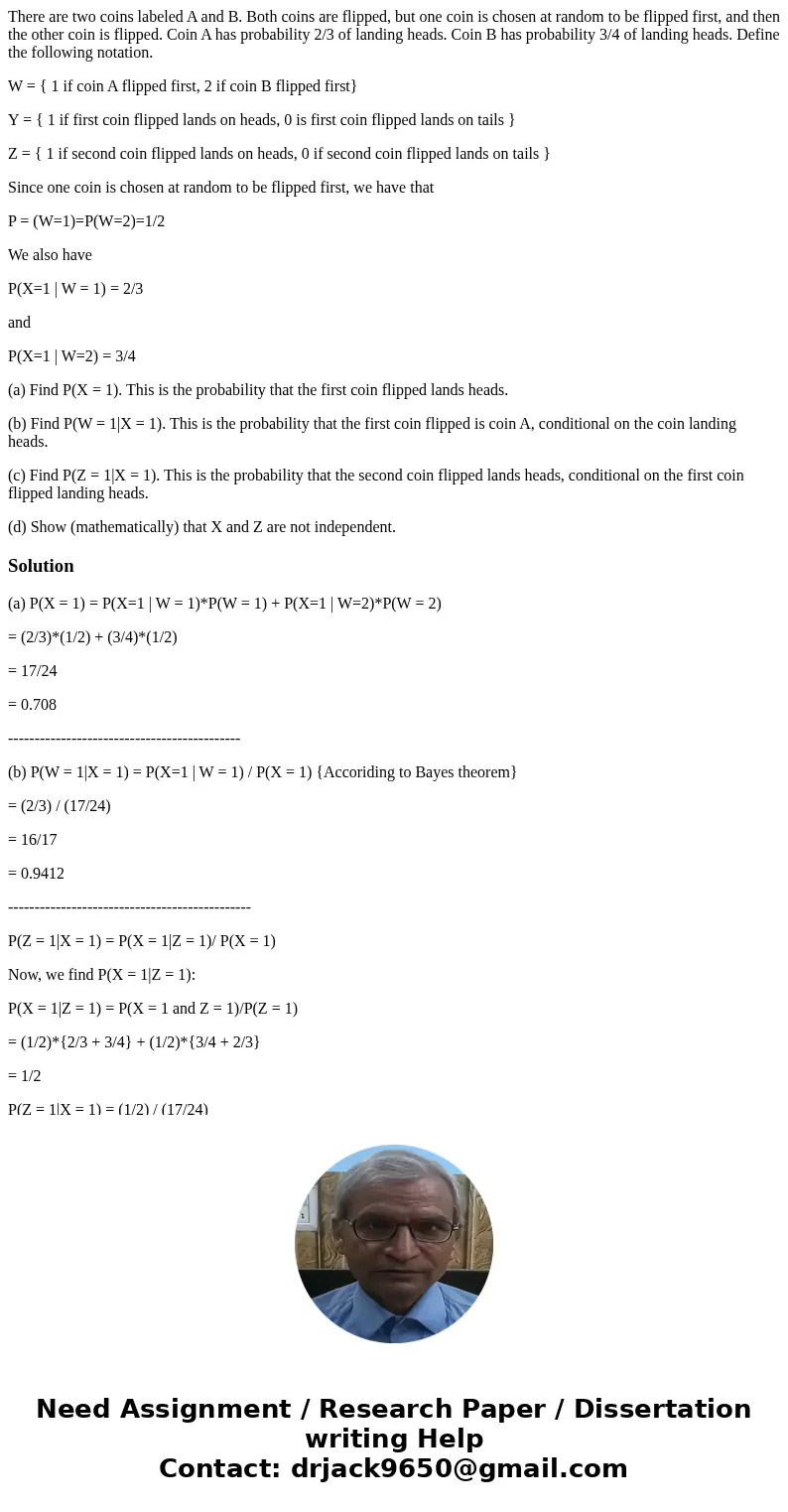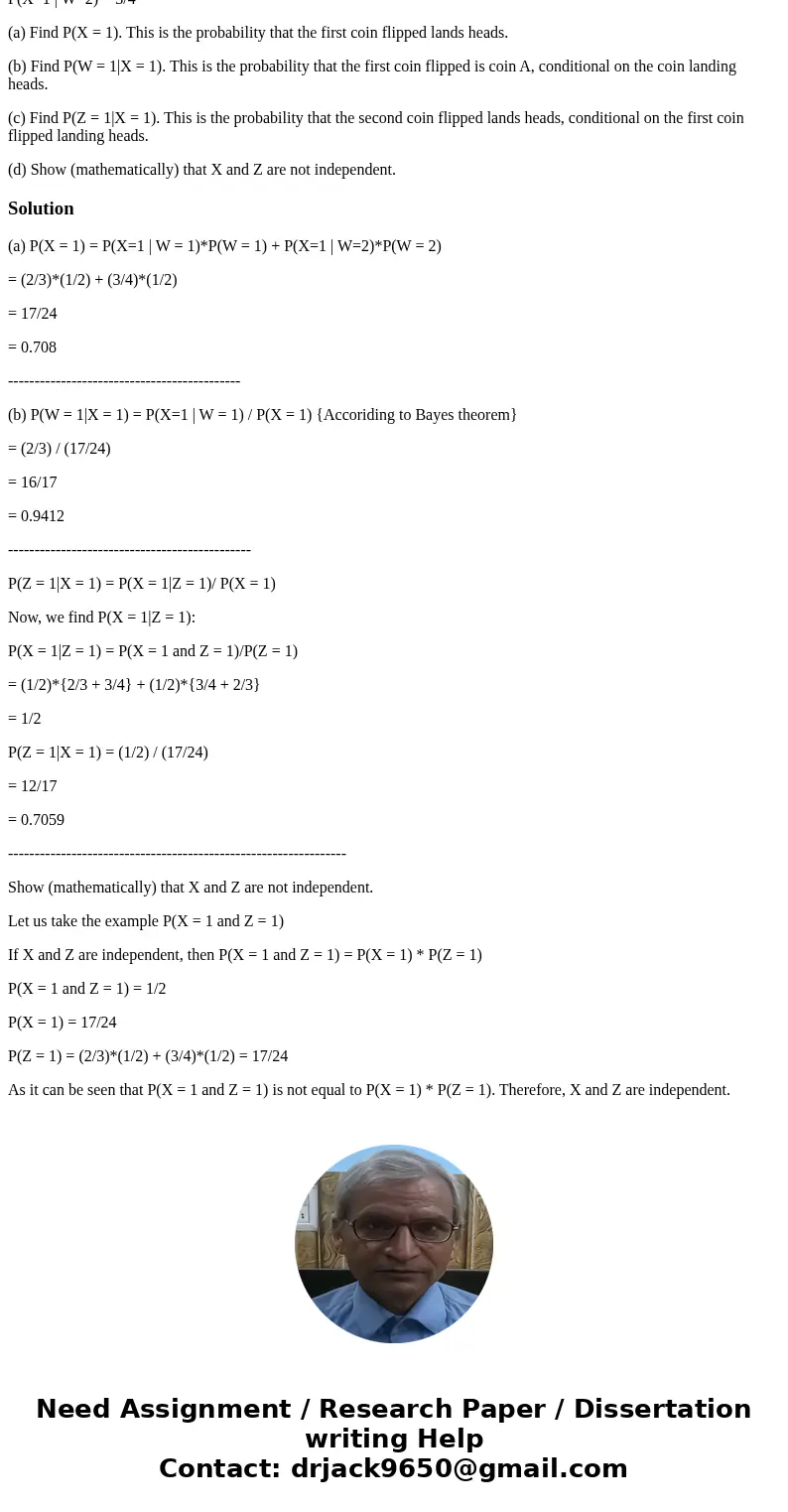There are two coins labeled A and B Both coins are flipped b
There are two coins labeled A and B. Both coins are flipped, but one coin is chosen at random to be flipped first, and then the other coin is flipped. Coin A has probability 2/3 of landing heads. Coin B has probability 3/4 of landing heads. Define the following notation.
W = { 1 if coin A flipped first, 2 if coin B flipped first}
Y = { 1 if first coin flipped lands on heads, 0 is first coin flipped lands on tails }
Z = { 1 if second coin flipped lands on heads, 0 if second coin flipped lands on tails }
Since one coin is chosen at random to be flipped first, we have that
P = (W=1)=P(W=2)=1/2
We also have
P(X=1 | W = 1) = 2/3
and
P(X=1 | W=2) = 3/4
(a) Find P(X = 1). This is the probability that the first coin flipped lands heads.
(b) Find P(W = 1|X = 1). This is the probability that the first coin flipped is coin A, conditional on the coin landing heads.
(c) Find P(Z = 1|X = 1). This is the probability that the second coin flipped lands heads, conditional on the first coin flipped landing heads.
(d) Show (mathematically) that X and Z are not independent.
Solution
(a) P(X = 1) = P(X=1 | W = 1)*P(W = 1) + P(X=1 | W=2)*P(W = 2)
= (2/3)*(1/2) + (3/4)*(1/2)
= 17/24
= 0.708
--------------------------------------------
(b) P(W = 1|X = 1) = P(X=1 | W = 1) / P(X = 1) {Accoriding to Bayes theorem}
= (2/3) / (17/24)
= 16/17
= 0.9412
----------------------------------------------
P(Z = 1|X = 1) = P(X = 1|Z = 1)/ P(X = 1)
Now, we find P(X = 1|Z = 1):
P(X = 1|Z = 1) = P(X = 1 and Z = 1)/P(Z = 1)
= (1/2)*{2/3 + 3/4} + (1/2)*{3/4 + 2/3}
= 1/2
P(Z = 1|X = 1) = (1/2) / (17/24)
= 12/17
= 0.7059
----------------------------------------------------------------
Show (mathematically) that X and Z are not independent.
Let us take the example P(X = 1 and Z = 1)
If X and Z are independent, then P(X = 1 and Z = 1) = P(X = 1) * P(Z = 1)
P(X = 1 and Z = 1) = 1/2
P(X = 1) = 17/24
P(Z = 1) = (2/3)*(1/2) + (3/4)*(1/2) = 17/24
As it can be seen that P(X = 1 and Z = 1) is not equal to P(X = 1) * P(Z = 1). Therefore, X and Z are independent.


 Homework Sourse
Homework Sourse